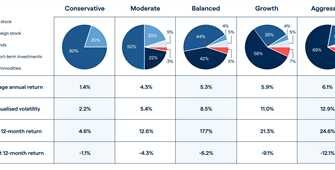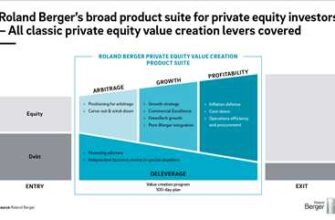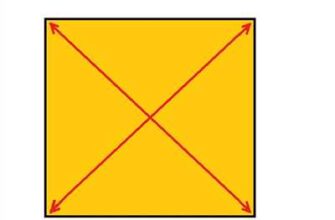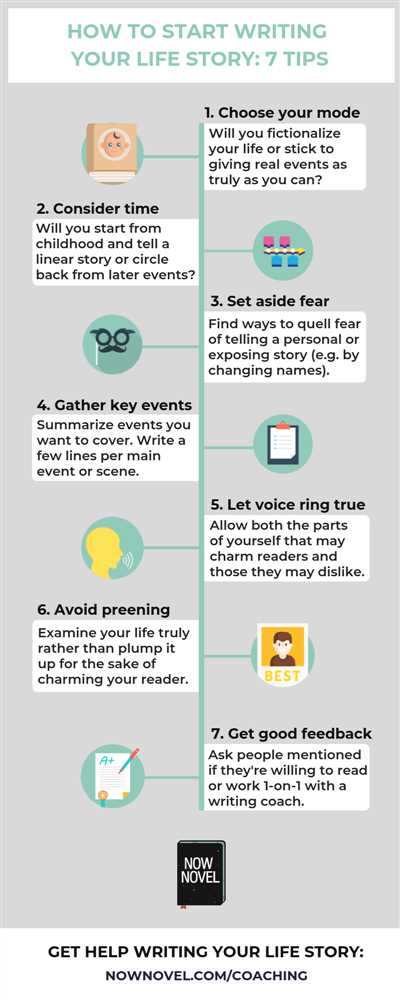
Starting a story can be daunting, especially if you’re unsure of where to begin. But with the right strategies and a clear understanding of what you want to write about, you can dive into the exciting world of storytelling and bring your ideas to life.
First, think about the genre and the type of story you want to tell. Are you interested in writing a novel, a memoir, or maybe a collection of short stories? Each genre has its own unique possibilities and challenges, so take some time to explore what interests you the most.
Next, consider the characters that will play a role in your story. Who are they? What are their motivations, fears, and desires? Really get to know your characters, as they will determine the actions and events that unfold throughout your narrative.
Once you have a clear idea of the genre and your characters, it’s time to think about the starting point of your story. Some writers like to begin with a specific event or action that sparks the main plot, while others prefer to slowly build up the world and introduce the characters before diving into the main conflict. There’s no right or wrong way to start, so pick a starting point that feels right for you.
One popular strategy is to begin in the middle of the action, which creates an immediate sense of intrigue and draws the reader in. This can be a great way to hook your audience from the very beginning and keep them engaged throughout the story.
If you’re writing a memoir or a story based on your own life, you can start with a specific memory or a significant event that had a profound impact on you. This allows you to explore your own experiences and emotions, and share them with readers in a compelling way.
Alternatively, you can start by addressing someone directly, as if you’re speaking to them personally. This creates a sense of intimacy and immediacy, and can make the reader feel like they’re a part of the story.
Remember, the beginning of your story is just the beginning. As you write, you’ll discover new ideas and directions, and your story may evolve in ways that you never expected. Embrace the process, trust your instincts, and enjoy the adventure of bringing your story to life.
So, if you’re ready to start writing, grab a pen and paper or open up your favorite writing software, and begin the exciting journey of storytelling. Whether you’re starting a novel, a memoir, or a collection of short stories, the possibilities are endless. So go ahead and start, and see where your imagination takes you!
- Starting Stories: 5 Great Beginning Strategies
- Spark a reader’s interest
- Pick a point of view for your prose
- Determine the right POV for your genre
- Think About Specific Events
- FAQs
- How Can I Write About Myself
- How Do You Know If It’s A Memoir
- Can I Hire Someone To Write My Book
- Video:
- How to Start Your Story: 4-Step Inciting Incident Checklist
Starting Stories: 5 Great Beginning Strategies
When it comes to starting a story, it’s important to determine the right strategy to grab your reader’s attention and spark their interest. Whether you’re writing a novel, memoir, or any other form of storytelling, the beginning is crucial. Here are five great strategies you can use to begin your story:
| 1. Start with a specific event or memory: If you want to make your reader feel like they’re right there with you, pick a specific event or memory from your life that has significance. This will give your story a strong starting point and set the stage for what’s to come. |
|
|
| 2. Introduce a memorable character: Another way to grab your reader’s attention is to introduce a compelling character right at the beginning. This could be someone from your own life or a fictional character you’ve created. Make the reader want to know more about this person and their story. |
| 3. Play with point of view (POV): If you’re a writer who enjoys experimenting with different narrative techniques, consider starting your story from a unique point of view. This can create intrigue and make your reader curious about how events unfold from that particular perspective. |
|
|
| 4. Begin with a thought-provoking question: If you want to immediately engage your reader’s mind, start your story with a question that will make them think. This can set the tone for the rest of your narrative and create a desire in the reader to find out the answer. |
| 5. Start in the middle of the action: If you’re looking for a more dynamic and fast-paced beginning, consider starting your story in the middle of an action-packed scene. This will immediately grab your reader’s attention and make them want to know how the events unfold. |
|
Remember, the beginning of your story sets the stage for everything that follows. Take the time to think about what strategy will work best for you and your story. If you’re not sure, you can always hire a professional editor or writing coach to help you determine the right approach. Don’t be afraid to experiment and have fun with your beginning – it’s your chance to hook your reader and make them eager to continue reading!
Spark a reader’s interest
When it comes to starting your story, you want to make sure you grab the reader’s attention from the very beginning. The opening lines of your book determine whether a reader will continue or put it down, so it’s crucial to make them count.
There are several strategies you can use to spark a reader’s interest:
- Begin with action: Starting your story with an exciting event or a moment of tension can instantly captivate the reader.
- Introduce a captivating character: Create a character that readers will find interesting and relatable. Give them depth and personality right from the start.
- Play with point of view: The point of view (POV) you choose can greatly impact the reader’s experience. Whether you go with first person, third person, or even multiple POVs, make sure it suits the story you want to tell.
- Use vivid prose: Paint a vivid picture with your words. Engage the reader’s senses and immerse them in the world you’ve created.
- Start with a specific moment or event: Instead of a broad introduction, plunge the reader into a specific moment or event that drives the story forward.
If you’re writing a memoir, you could start with a memorable anecdote or one of your most vivid memories. This personal touch can instantly connect with readers.
Another approach is to ask a thought-provoking question or present a unique FAQ that sets the tone for your story. For example, if you’re writing a fantasy novel, you could ask, “What if you discovered you had the power to control the elements?”
Remember, your goal is to engage the reader and make them want to keep turning the pages. So think about what would excite you as a reader and hire yourself as a writer to deliver it.
It’s important to note that there are no right or wrong ways to start a story. You have endless possibilities, so pick the one that feels right for you and your genre.
By following these strategies, you can spark a reader’s interest right from the beginning and set the stage for a great story that they won’t be able to put down.
Pick a point of view for your prose
When it comes to writing a book or memoir, one of the most important decisions a writer must make is the point of view (POV) they will use. The POV determines who tells the story and from whose perspective the events are portrayed. It’s the writer’s way of determining the lens through which the reader will experience the story.
There are several possibilities when it comes to picking the right POV for your prose. You can choose to write in the first person, using “I” or “we” to tell the story from your own perspective. This is a popular choice for memoirs, as it allows the writer to share their own memories and experiences in a personal and direct way.
If you want to write a novel or a work of fiction, you can also choose to write in the third person. This means that the story is told from the perspective of a character or narrator who is not the writer themselves. It allows for more flexibility and can give the reader a more objective view of the events and characters.
Another option is to write in the second person, using “you” to address the reader directly. This POV is less commonly used but can create a unique and interactive reading experience. It’s a great choice if you want to immerse the reader in the action and make them feel like they are a part of the story.
When determining the best POV for your prose, think about what you want to achieve with your writing and what will be of most interest to your readers. Consider the genre of your book and the specific strategies you want to employ to spark their interest and keep them engaged.
It’s really up to you as the writer to decide which POV is the best fit for your story. Each POV has its own advantages and disadvantages, so weigh them carefully and think about how they align with your goals for the book or memoir.
Remember, you’re the one starting this journey, and you know better than anyone else what it’s like to be inside your own head. Pick the POV that feels right to you and start writing.
If you’re not sure which POV to pick or how to begin, there are plenty of resources and FAQs available to help you navigate these decisions. You can also hire a writing coach or editor to provide guidance and support along the way.
So, determine your POV, make your point, and let your prose bring your story to life!
Determine the right POV for your genre
When starting a story, one of the first decisions you need to make is what point of view (POV) you want to use. The POV you choose can greatly impact the way your story is told and how your readers experience it. Different genres have different conventions for POV, so it’s important to determine the right one for your specific genre.
If you want to write a memoir or a book about your own life, the first-person POV is a great starting point. By telling your story from your own perspective, you can provide a personal and intimate view of your experiences. This can help to spark your readers’ interest and make them feel like they are a part of your journey.
On the other hand, if you’re writing a novel with multiple characters and want to play with different perspectives, the third-person POV might be the better choice. This allows you to have a broader view of the action and explore the thoughts and feelings of multiple characters. It gives you more possibilities for storytelling and allows you to delve into the minds of your characters.
It’s important to think about your reader’s view when picking a POV. Consider what you want them to see and feel, and how you want them to engage with your story. Different POVs offer different strategies for engaging readers, so it’s important to choose the one that best aligns with your goals.
When determining the right POV for your genre, it’s also helpful to look at successful books in your genre and see what POV they use. This can give you a starting point and help you understand what works well for that specific genre.
If you’re still unsure about which POV to use, there are some FAQs you can ask yourself to help you make a decision:
1. What genre am I writing in? Different genres have different conventions for POV, so it’s important to understand what is expected in your specific genre.
2. What kind of story do I want to tell? Some stories lend themselves better to a specific POV. Think about the plot, characters, and themes of your story and consider which POV would best serve them.
3. Do I want my readers to relate to a specific character? If you want your readers to connect with a specific character on a deep level, a first-person POV can help to create a strong sense of empathy.
4. Do I want to explore multiple perspectives? If your story involves multiple characters and you want to delve into their thoughts and motivations, a third-person omniscient POV might be the best choice.
5. Do I want my story to feel more immersive or distant? The POV you choose can affect the level of intimacy and immediacy in your prose. First-person POV can make the reader feel like they are experiencing the story firsthand, while third-person POV can create a more objective and observational tone.
Overall, determining the right POV for your genre is an important decision that can greatly impact the way your story is told. Consider your goals, the specific genre conventions, and the effect you want to have on your readers. By carefully considering these factors, you can make an informed decision that will set the stage for a successful and engaging story.
| POV | Genre |
| First-person | Memoirs, personal narratives |
| Third-person limited | Novels, short stories |
| Third-person omniscient | Fantasy, epic novels |
| Second-person | Interactive fiction, choose-your-own-adventure |
| Multiple perspectives | Historical fiction, literary fiction |
Think About Specific Events
When starting your story, it’s important to think about specific events that have had an impact on your life. These events can be pivotal moments or even smaller actions that have shaped your character.
In memoirs or first-person narratives, the writer can determine which events to pick and how to write them. It’s important to think about the specific events that will not only interest you as the writer, but also engage the reader.
One strategy is to think about the actions that have had a profound effect on you. What were the moments in your life that really made you think, reflect, or even change the course of your life? By focusing on these specific events, you can give your story a clear starting point and make sure you’re hooking your reader from the beginning.
Another approach is to think about the specific events that are relevant to the genre you’re writing in. If you’re writing a memoir, think about the memories that stand out the most to you. If you’re writing a novel, think about the events that will spark interest in your readers and keep them engaged throughout the book.
Remember, when starting your story, it’s crucial to think about the specific events that will grab your reader’s attention and keep them wanting more. By thinking about these events and starting from there, you can create a strong and captivating beginning to your story. So take the time to think about the specific events that have shaped your life and determine which ones would make a great starting point for your story.
FAQs
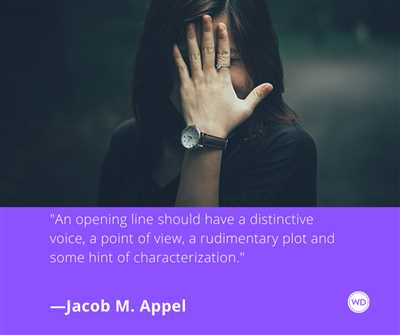
-
What genre should I pick for my book?
-
How do I determine the right point of view (POV) for my story?
-
Can I write a memoir if I don’t remember all the specific events of my life?
-
What strategies can I use to spark my creativity and begin writing?
-
Do I need to hire someone to help with editing and proofreading my book?
-
If I want to write about someone else’s life, what should I consider?
-
How can I make my stories more engaging and interesting for the reader?
-
What are some common mistakes that writers make when starting their novels or memoirs?
-
Can I write a memoir in the form of prose instead of a traditional narrative?
-
Is it necessary to include action in my story from the very beginning?
These are just a few of the frequently asked questions (FAQs) writers have when starting their stories. It’s important to clarify any doubts you may have in order to have a clear view of your book. Remember, you are the one who knows your story best, so trust yourself and let your memories and experiences play a major role in the beginning of your work.
How Can I Write About Myself
Writing about yourself can be a challenging task. If you want to tell your story, share your thoughts, or express your experiences, it’s important to determine the specific genre or point of view (POV) you want to use. Whether you’re writing a memoir, a novel, or even a series of short stories, there are strategies you can use to make your writing engaging and captivating for the reader.
One of the first steps is to think about what interests you and what memories or events from your life spark a sense of action or intrigue. These moments can become the starting point for your story or character development. If you’re writing a memoir, you can pick specific FAQs or events from your life that you think readers would find interesting. If you’re writing a novel, you can play with different possibilities and create a world that’s entirely unique.
Another important aspect is the point of view you choose to write from. You can write in the first person, as if you’re speaking directly to the reader, or you can write in the third person and create a more objective view of yourself. The POV you choose will determine how the reader perceives you and your story.
It’s also crucial to make sure your writing is compelling and well-written. Great prose can make a world of difference in how engaging readers find your work. If you’re not confident in your writing abilities, consider hiring a professional editor or someone experienced in memoirs or the specific genre you’re writing in. They can help you refine your ideas and polish your writing to make it the best it can be.
In conclusion, if you want to write about yourself, it’s essential to determine the genre or POV you want to use, think about what interests you and sparks your creativity, and make your writing captivating for the reader. With these strategies in mind, you can successfully start your story and create a compelling piece of writing.
How Do You Know If It’s A Memoir
When starting a new writing project, it’s important to determine the genre and format in which you want to express your story. If you’re considering writing a memoir, you may be wondering how to know if your story qualifies as one. Here are some strategies to help you determine if your book idea is suitable for a memoir:
- Look at your memories: The main focus of a memoir is to share personal experiences and memories from your own life. If your story revolves around your own life and experiences, then it’s likely a memoir.
- Think about the specific events: Memoirs often zoom in on specific events or periods in a person’s life that have had a significant impact. If your story revolves around one or a series of specific events, it’s more likely a memoir.
- Consider the point of view: Memoirs are typically written from the first-person point of view, allowing the reader to experience the events through the eyes of the author. If you want to share your story from your own perspective, then it’s likely a memoir.
- View it as a character-driven story: Memoirs often focus on character development and personal growth. If your story is more about your personal journey and transformation, then it’s likely a memoir.
- Spark interest in someone else’s life: Memoirs can also explore the lives of people who have had a significant impact on the author. If your story is about someone else’s life but told from your perspective, it can still be considered a memoir.
It’s important to note that there are no hard and fast rules when it comes to writing a memoir. You have the freedom to determine how you want to present your story and which genre feels right for you. Whether you choose to write a memoir or a novel, the key is to pick the genre that best fits your story and your intentions as a writer.
If you’re still unsure about whether your story is a memoir or not, you can always hire a professional editor or literary agent to help you determine the genre and give you guidance on how to structure your book. Ultimately, the most important thing is to make sure you’re telling your story in a way that resonates with you and your readers.
By following these strategies, you can start writing your memoir with a clear understanding of what it entails and how to shape your memories and experiences into a compelling narrative that captures the reader’s interest.
Can I Hire Someone To Write My Book
So, you really want to write a book. But what if you’re not quite sure how to begin? What if you don’t know what genre you want to write in, or what specific story you want to tell?
It’s perfectly normal to feel overwhelmed by all the possibilities and to be unsure of where to start. That’s where hiring a professional writer can come in handy.
When you hire someone to write your book, you’re not just getting a person to put pen to paper for you. You’re getting a collaborator, someone who can help you determine the right genre for your story, spark new ideas, and bring your ideas to life in prose.
But before you begin looking for a writer, it’s important to know what you want from your book. Do you want a novel or a memoir? What genre do you think it falls under? What specific events or memories do you want to include? What point of view (POV) and style of writing would you like?
Once you have a clear vision of what you want, you can start looking for a writer who specializes in that genre or style. Many writers have their own FAQs and can provide samples of their work to help you determine if they’re the right fit for your project.
Remember, hiring someone to write your book doesn’t mean you’re giving up creative control. It’s still your story, your ideas, your memories. The writer is simply there to help you bring it all together and make it shine.
Working with a writer can also be a valuable learning experience. You’ll be able to see how they approach storytelling, how they develop characters, and how they craft engaging narratives. This can help you become a better writer yourself if you decide to write more stories in the future.
So, if you’re ready to take action and start your book but don’t quite know how to begin, don’t be afraid to hire someone to help you. Writers are there to support you and bring your vision to life. With their expertise and your ideas, you can create a captivating story that will keep your reader’s interest from beginning to end.
Remember, these are your stories, your memories, your life. Hire someone who can help you tell them the way you want them to be told.






